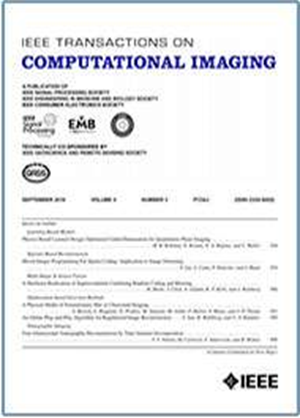MAPANet: A Multi-Scale Attention-Guided Progressive Aggregation Network for Multi-Contrast MRI Super-Resolution
IF 4.2
2区 计算机科学
Q2 ENGINEERING, ELECTRICAL & ELECTRONIC
引用次数: 0
Abstract
Multi-contrast magnetic resonance imaging (MRI) super-resolution (SR), which utilizes complementary information from different contrast images to reconstruct the target images, can provide rich information for quantitative image analysis and accurate medical diagnosis. However, the current mainstream methods are failed in exploiting multi-scale features or global information for data representation, leading to poor outcomes. To address these limitations, we propose a multi-scale attention-guided progressive aggregation network (MAPANet) to progressively restore the target contrast MR images from the corresponding low resolution (LR) observations with the assistance of auxiliary contrast images. Specifically, the proposed MAPANet is composed of several stacked dual-branch aggregation (DBA) blocks, each of which consists of two parallel modules: the multi-scale attention module (MSAM) and the reference feature extraction module (RFEM). The former aims to utilize multi-scale and appropriate non-local information to facilitate the SR reconstruction, while the latter is designed to extract the complementary information from auxiliary contrast images to assist in restoring edge structures and details for target contrast images. Extensive experiments on the public datasets demonstrate that the proposed MAPANet outperforms several state-of-the-art multi-contrast SR methods.MAPANet:用于多对比 MRI 超分辨率的多尺度注意力引导渐进聚合网络
多对比度磁共振成像(MRI)超分辨率(SR)利用不同对比度图像的互补信息重建目标图像,可为定量图像分析和精确医疗诊断提供丰富的信息。然而,目前的主流方法未能利用多尺度特征或全局信息进行数据表示,导致结果不佳。针对这些局限性,我们提出了一种多尺度注意力引导的渐进聚合网络(MAPANet),在辅助对比度图像的帮助下,从相应的低分辨率(LR)观测值逐步还原目标对比度 MR 图像。具体来说,拟议的 MAPANet 由多个堆叠的双分支聚合 (DBA) 模块组成,每个模块由两个并行模块组成:多尺度注意模块 (MSAM) 和参考特征提取模块 (RFEM)。前者旨在利用多尺度和适当的非局部信息来促进 SR 重建,后者旨在从辅助对比度图像中提取补充信息,以帮助恢复目标对比度图像的边缘结构和细节。在公共数据集上进行的大量实验表明,所提出的 MAPANet 优于几种最先进的多对比度 SR 方法。
本文章由计算机程序翻译,如有差异,请以英文原文为准。
求助全文
约1分钟内获得全文
求助全文
来源期刊

IEEE Transactions on Computational Imaging
Mathematics-Computational Mathematics
CiteScore
8.20
自引率
7.40%
发文量
59
期刊介绍:
The IEEE Transactions on Computational Imaging will publish articles where computation plays an integral role in the image formation process. Papers will cover all areas of computational imaging ranging from fundamental theoretical methods to the latest innovative computational imaging system designs. Topics of interest will include advanced algorithms and mathematical techniques, model-based data inversion, methods for image and signal recovery from sparse and incomplete data, techniques for non-traditional sensing of image data, methods for dynamic information acquisition and extraction from imaging sensors, software and hardware for efficient computation in imaging systems, and highly novel imaging system design.
 求助内容:
求助内容: 应助结果提醒方式:
应助结果提醒方式:


